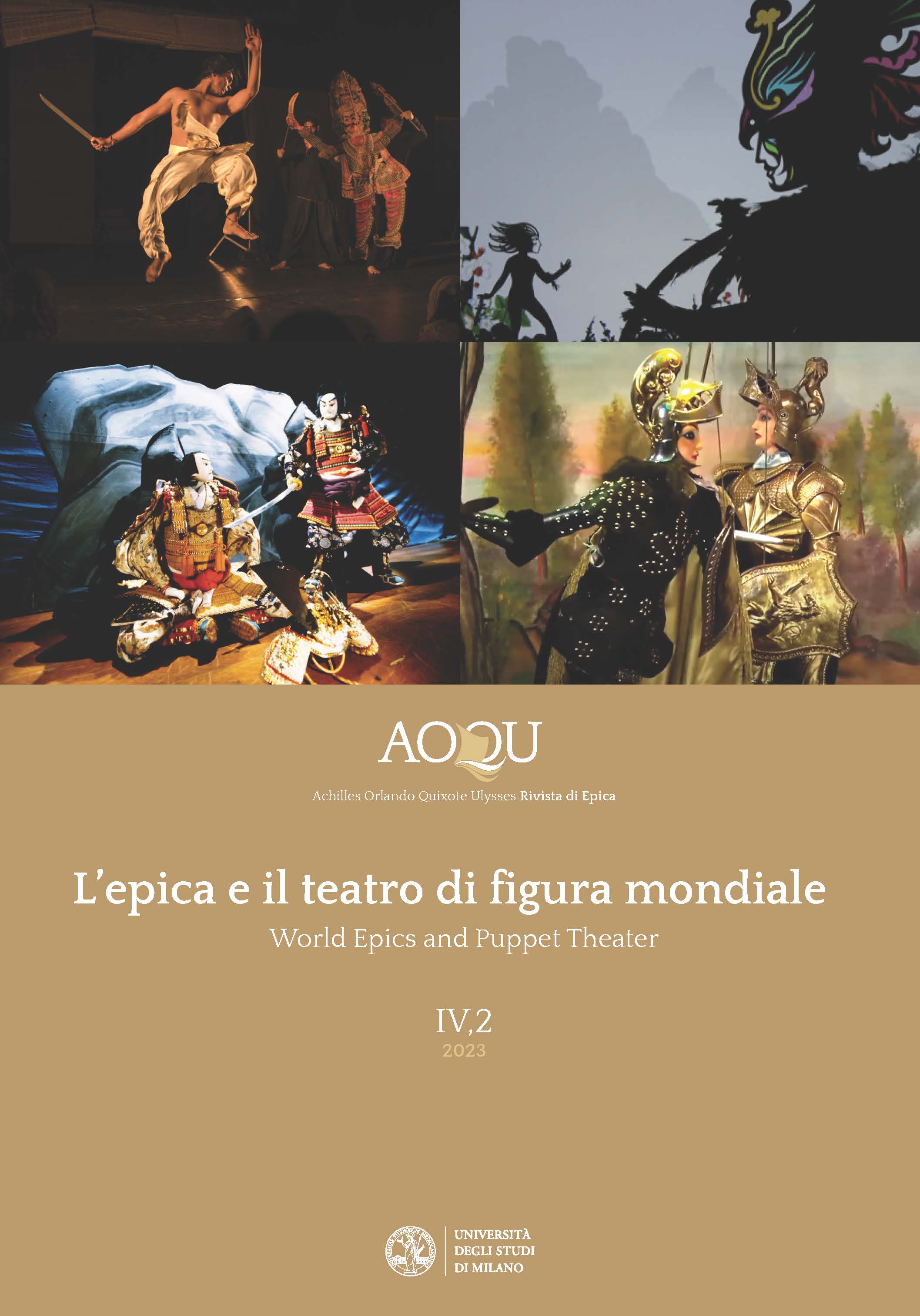Abstract
The epic farce is used as a source in the Adrien-Joseph Le Valois d’Orville’s puppets parody Don Quichotte Polichinelle, written for the 1743 Saint-Germain fair in Paris. The Don Quichotte Polichinelle manuscript, preserved at Bibliothèque Nationale de France, shows that the parodist follows closely the comedy-ballet Don Quichotte chez la duchesse by Charles-Simon Favart, performed at the Académie royale de Musique, the same year. The puppet parody transforms the original version into vaudevilles. The Adrien-Joseph Le Valois d’Orville’s parody manuscript cen-tres on three key moments from the Favart’s comedy. The parody uses a vulgar style and focuses on the simulated animal metamorphosis, a pantomime ballet interpreted by the famous Louis An-toine Cuvillier in Favart’s work. This article is about the choice of the Don Quichotte thematic, in a fairground show context, fertile ground for reflection on conventional societal attitudes and on the contemporary aesthetic situation of theatre, in France. The parody by Valois d’Orville, who has also written the libretto of Rameau’s Platée, highlights in a more free and transgressive way the message given by Favart’s comedy-ballet, while honouring and publicizing it, through the puppet theatre

